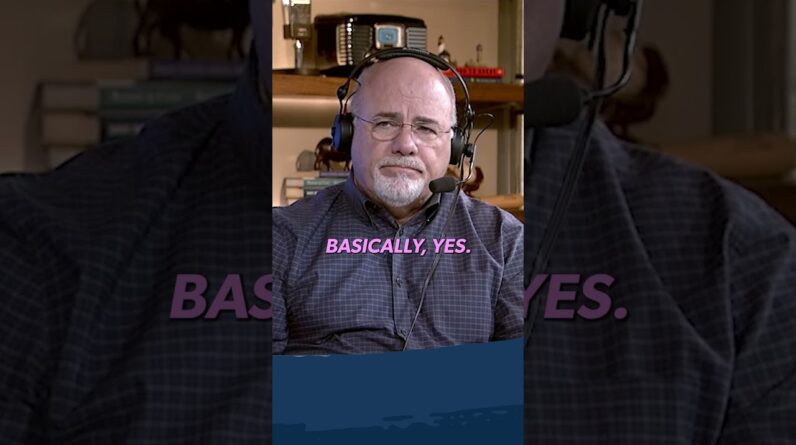
[Music] well hey you guys so I recently came across some data about the average American's financial status now don't get me wrong I don't like comparison culture but on some level awareness about what's going on in the state of personal finance for other people out there could be really helpful to you so how about we just take a moment and do a little Financial Wellness checkup together and I'll share some up to datee Stats think about the average level of debt that people have the average salary all of that and it'll give you a chance to see how you measure up against the rest of America when it comes to money and maybe this will be an encouragement to you because you may need to be reminded that hey I am making good progress with my money you know you got to you got to say that every now and then or maybe you might say well okay I need a little bit more motivation here to get in control of my money and do this plan but whatever the case is do not worry because at the end I'm going to share some practical tips to get you moving in the right direction and remember the averages that I'm sharing with you represents the middle point of all the data taken remember average is different than median that is different right like we go back to our elementary school days that we can remember so also know that your numbers you know could be higher could be lower regardless do not beat yourself up you know again you're not going to get me yelling at you or something so I don't want you to feel discouraged again this is just to kind of see hey where do I measure up against the average state in America so let's just try to keep an open mind and look at these numbers as rough guidelines not hard rules because we are all on different Financial Journeys and at different places okay so let's start with salary so the average annual salary in the US is $61,900 and remember your income is your most powerful will building tool so think about kind of just where you fall you know above average below average around average and do you feel like you're at a place where you're able to use your income to build wealth and what I mean by that is that you say yeah okay here's my income here's what I'm paid every month and are you able to live below your means are you able to have some margin to maybe pay off debt or maybe you're debt free and all that income is yours and you get to decide hey how am I going to save it or invest it or give it or spend it so again your salary is a really big part of this equation because your income is going to help you build wealth next is debt levels so now that we have an idea of how much the average person makes let's look at debt personal debt in the US is at an alltime high of $17.5 trillion trillion with a t and on average each adult has $66,872 in debt and this includes everything from credit cards student loans so take a second let that sink in kind of compare where you're at and again the average debt in America you're going to see is all these different buckets of debt okay and so I do want you to think that hey maybe you've been on this journey for a while some of you that have been following you know my Channel or my podcast or you've been you know following the Ramsey way for a bit you are out of debt and maybe you have your fully funded emergeny finds and you're like okay yeah this is feeling good so just knowing your average is really helpful so when you look at each specific debt this is what gets interesting so credit card debts the average person carries $651 in credit cards eight out of 10 adults in America have at least one credit card anyways this is a slippery slope this is a thing that you know I feel like this is the one area I'm like cut up your credit cards and everyone's like I'm going to keep one or I'm going to use mine for my points so listen I get there's a game out there to be played and people like yeah I get free hotels I get free flights I get to travel you know cash back like whatever it is the game that they play I get it okay I hear people say it and and I get it but only to a point because everyone's like well I pay it off every month so it's fine but what we're seeing over and over again is that that's been people's mindset but yet they're not paying it off every month which means they are paying interest okay and interest is so high on credit cards it's like up to like 22.6% APR like it it is wild so you are paying interest on top of this which is how Banks make make money so remember that banks are making money off of fees and interests and so while you feel like you're playing an airline game you're actually making the banks Rich so getting rid of credit cards in my opinion it's the way to go all right car loans so around 35% of households have a car loan and they each owe on average $ 36,37 and when you look at monthly payments the average for a new car is $738 the average for a used car is $532 I mean a new car y'all I mean almost $750 like that's a lot of money and when you're living paycheck to paycheck that will change your life that changes your budget if you have an extra $750 and so this is where the conversation about the car has to come into play and a lot of people in this world of personal finance you know I'll read different books or listen to other people in podcasts or interviews cuz I'm always just curious what people think and it is funny the number one thing we can all agree with cuz sometime we you know we can disagree with credit cards or student loans or mortgages or you know investment real estate or whatever the one thing that is consistent across the board of majority of people out there teaching about personal finance is that the car loan is a ripoff to the average American it just is like you are you are borrowing money paying interest on something that's going down in value just because it's a car and listen a crappy car A5 $6,000 car can get you to the same place you got to go as a $60,000 car right now I understand it is nice and if you have the money and you want a great car that's what you choose to spend your money on fantastic but don't go into debt for it cuz on a mathematical basis it does not make sense it doesn't in a car so say no to the car Alan if you cannot pay your car off in 18 to 24 months I want you to get rid of your car if your car loan is more than half of your annual income you have too much car okay so these are times that you're going have to sell your car if you're underwater you may have to take out a small loan to get out of the car payment but listen all of that is worth it if you you know get a get a loan for the difference and maybe a couple thousand dollars more to buy another car and then start there I mean I would rather have a $88,000 loan than a $38,000 loan right so there is something powerful about not having that car payment and for that $750 to be yours and not the banks all right the next piece of debt that is very common is the morgage and this is a big one because this does take up a big bulk of people's monthly expenses and in fact the mortgage accounts for 70% of All American debt the average mortgage in the US is $145,300 with a monthly payment of $26 so just ask yourself hey how does my mortgage fit with these numbers it's a really great question and the price of home since 2021 2022 I mean it is just skyrocketed and it is pretty much stayed there it has not gone back down and so it is frustrating for first-time home buyers for sure cuz stuff is just so expensive but you guys this is a part of your finances you want to be really wise so if you have the money and you're in a good position where you're like yeah I have you know 5 20% to put down 5% to put down uh you know your mortgage is around you know 25% of your take-home pay you're able to do it in a wise way go ahead and get into the markets but if it's if you're not there it may take you a little bit longer to do that but those parameters really allow your mortgage your house your rent even to be a blessing not a curse but there's going to be some hard decisions to make within that and it's so frustrating I know all right before we move on to even more stats I want to take a quick break to tell you about one of our sponsors so as parents we know it's not always easy to make sure that our kids stay away from online contents that we don't want them to see so let me just tell you about a solution true play games true play is one app with lots of entertaining faith-based games at videos and more all created to help reinforce biblical values and build character there are no inap purchases no chat rooms and no ads meaning no unpleasant surprises true play turns screen time into stress free time for Mom and Dad so go to trpl games.com Rachel now and get 20% off an annual subscription with promo code Rachel 20 that's true trpl games.com Rachel all right let's get into some more stats shall we so student loans did you know that student loans are the fastest growing debt in a America so according to recent data the average borrower owes $38,900 in student loans and it's not just about the money but many young adults say because of the weight of student loans that they are not making basic Financial life decisions things like investing in retirement buying a home or even getting married so if you have looming student loans and you've not paid them off you are not alone but also I want you to get motivated to pay them off because again this is one piece of debt that can just hang around for years and years and years so getting out of this and paying it off is so key all right let's look at savings and investing and so this is really planning for the future and since this number is the average American overall and doesn't consider a few different factors instead of just giving you all the stats for this I want to approach it a little differently because how much you have in savings really revolve around your current situation so I want you to get a good idea of what this should be so I'm going to link an article in the description to kind of give you some guidelines and walk you through some questions because this is a really personalized estimates because it's going to be a percentage of what you make or 3 to six months of expenses that should be saved and that kind of thing so it's really going to be dependent upon you on what you should be doing now for investing it's hard to compare averages on something that grows significantly through your lifetime but if you're interested in estimating how much progress ress you could make down the road make sure to check out Ramsay's investment calculator it will give you a great idea on where you're headed and so savings and investing again this has to be a part of your financial plan and it is going to help you I mean it really is there's something there when you have cushion in life it is just gives you peace it does all right so I know that's a lot of info hope you're doing okay hope that you're looking at your own numbers you're not feeling overwhelmed though but I really want to walk you through some action able steps to help you get out of debt and start to build wealth so again the baby steps is what we always talk about so you want to start our emergency fund of $1,000 next you want to get out of debt by paying off your smallest debt to your largest debt then you're going to save up 3 to 6 months of expenses in an emergency fund and once you do all of that then you're going to say hey I'm going to you know really work on investing 15% of my income into retirement and kids college paying the house off early and all of it so these things are really going to help you get into to a place financially that is going to be above and beyond uh what the average American is doing because again you're being intentional with your money so remember you are not alone you all you've got this I promise and putting some steps into place again is going to be so crucial to finding Financial Peace and getting yourself above average if you will versus just the average American and remember all of this St it doesn't Define you whatever your numbers are you can always choose to make different decisions with your money and I know again it can feel like it's it's really difficult at first but I really want to encourage you that you can do this so I'm going to leave a link for some more tools and resources just to get you started because I really think this is important stuff and if you want to make sure to check out my video on how to become financially smarter than 40% of people make sure to do that next all right you guys remember to take control of your money and create a life you love







